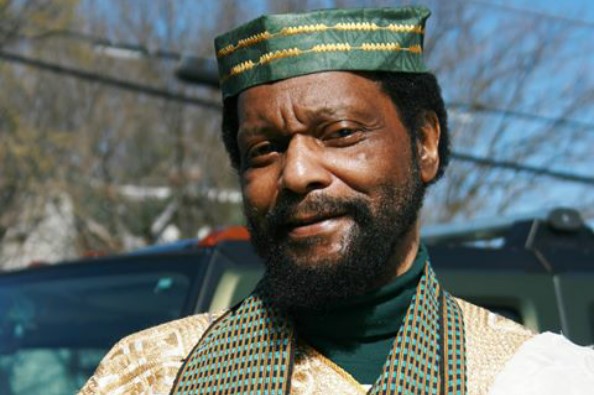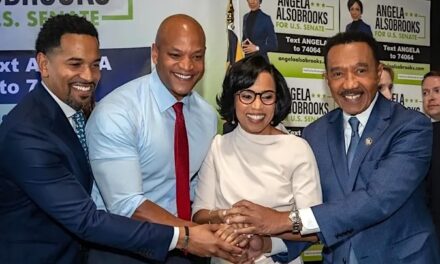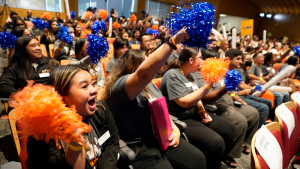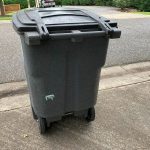By Sabreen Dawud,
Special to the AFRO
Standing three stories tall on Eighth St. in Washington, D.C. lives the Ujamaa School, the oldest independent African-centered school in the U.S.
Founded on May 4, 1968, the Ujamaa School shelters a curriculum that is rich in African culture and history. Students at all levels are taught literature, mathematics, sciences, African and U.S. history, African languages and much more. Students enrolled are as young as two-years-old, as the institution has prided itself on excelling the academic abilities of the forthcoming generation.
“By the time that they are three and a half to four years old they are reading and writing, adding and subtracting,” shares Dr. El Senzengakulu Zulu, founder and director of Ujamaa School.
“All our classes have African names. The reason why they name the classes instead of ‘first,’ ‘second,’ or ‘third grade’ our children move very fast the way we teach them. We’ve had graduate students as early as 14-years-old go into college, 15 to 16 years is the norm.”
While scholars are introduced to some of the same core academic subjects as other schools, Ujamaa School emphasizes the significance of African people and culture in their curriculum. Ujamaa School educators such as Mama Akina emphasize the importance of centering African culture in education.
“It’s really important to have a rapport with the students. I try to make sure that I connect with them on a level beyond just giving them information.
Understanding who they are. Making sure they understand who they are also as African people [and] as youth in the community,” Akina explained.
“Helping them to understand that they represent more than themselves in the world. They represent their families, their communities, the school—African people as a whole,” she added.
While the work of the school remains historically significant, being the first of its kind has come with adversity. As a Black-owned institution that is not associated with the District of Columbia Public School system, Zulu recognizes the pushback Ujamaa School faces.
“The developers want this building bad,” he said. Zulu also expressed concerns surrounding more invasive attempts to disrupt Ujamaa School’s operation.
“We’ve had break ins at our school. We found listening devices—three listening devices. We’ve disassembled them. The first one I found, I put it on the desk and I said ‘What is this?’ I looked at what it was and I said ‘I can’t take it home with me. I’m going to leave it right here.’ When I got back the next day, it was gone. They came and got it,” Zulu said.

Though he notes the hardships that Ujamaa School has faced, the impact of their African-centered program is exemplified within the students. Abena Bonsu, a 12-year-old student currently in the college-level class known as the Khalfani class, described her experience as academic fun.
“I have been enjoying it a lot. It’s mostly about doing school work, but it also has fun activities too. I am also doing drumming classes and dancing classes,” she said.
“I feel like it’s been an honor since I’ve been here and I don’t really wanna leave yet.”
For more information on the Ujamaa School, visit their website ujamaaschooldc.com. If interested in helping to fund their institution, you can donate to their Cashapp at $ujamaaschool.
The post AFRO inside look: Ujamaa School, America’s oldest independent, African-centered institution appeared first on AFRO American Newspapers.











